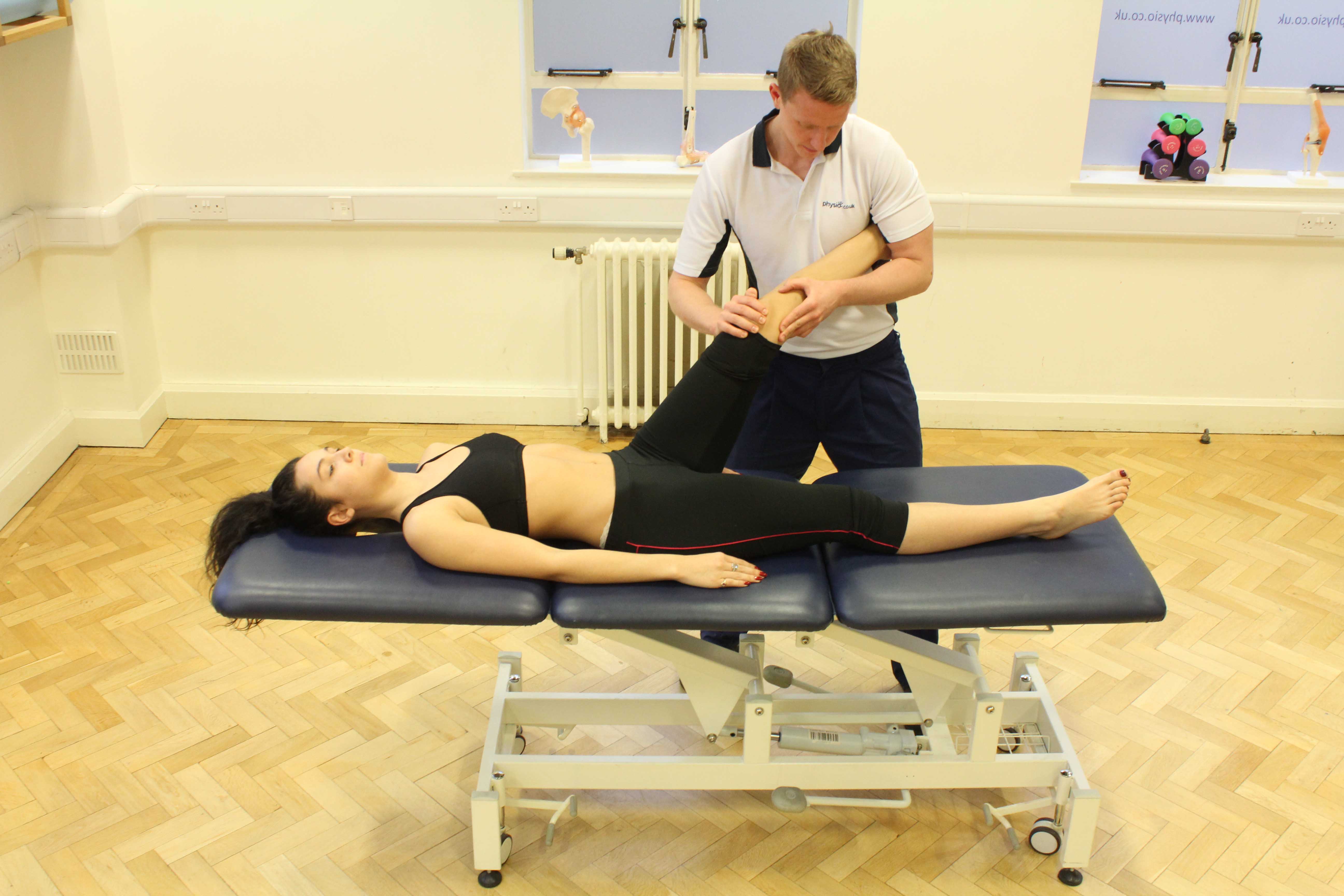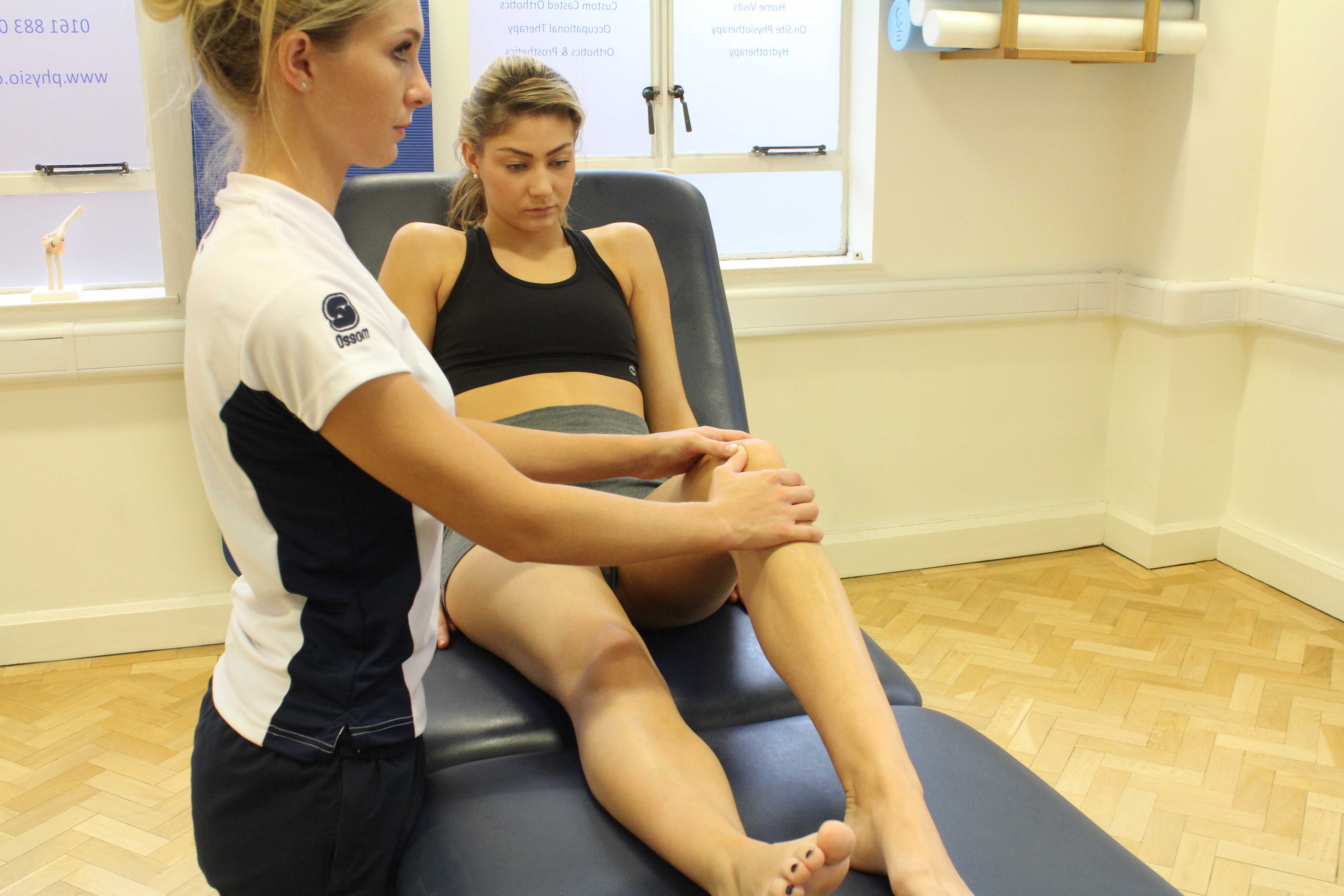What is patellar tendinopathy?
Patellar tendinopathy is often referred to as patella tendonitis or jumper’s knee. Patellar tendinopathy is inflammation within the patellar tendon (the thick band of tissue just below the knee cap). Physiotherapy is an important part of the rehabilitation process for patellar tendinopathy.
How does patellar tendinopathy happen?
Patellar tendinopathy is caused by overuse of the patellar tendon. Repetitive movements that stress the patella tendon, such as hopping, jumping and bounding, can lead to microscopic tears within the tendon. Patella tendinopathy sometimes develops in athletes following a change in training habits (ie frequency, duration, intensity or training surface).
 Above: Therapist performing knee assessment
Above: Therapist performing knee assessmentWhat are the symptoms of patellar tendinopathy?
Patellar tendinopathy is typically described as a gradual onset pain just below the kneecap. The pain is normally aggravated by activities such as jumping, hopping and bounding. Other symptoms include:
What should I do if I have patellar tendinopathy?
Patellar tendinopathy does not get better unless the causes are addressed. If you suspect that you have patellar teninopathy you should arrange a physiotherapy assessment as soon as possible. In the meantime you can ice your patellar tendon using crushed ice or a bag of frozen peas wrapped in a damp cloth for 15–20 minutes.
Physiotherapy treatment for patellar tendinopathy.
Physiotherapy is very important in the treatment of patellar tendinopathy. You physiotherapist will be able to diagnose your problem at your initial assessment and develop a treatment programme specifically for you. Treatment often consists of:
What shouldn’t I do if I have patellar tendinopathy?
If you suspect that you have patellar tendinopathy you should not ignore the problem. If you continue to exercise you may cause further damage and prolong your recovery.
 Above: Therapist performing soft tissue massage on the patella and surrounding connective tissue.
Above: Therapist performing soft tissue massage on the patella and surrounding connective tissue.Could there be any long-term effects from patellar tendinopathy?
If correctly diagnosed and treated, patellar tendinopathy does not produce any long-term effects. If left undiagnosed and untreated it can lead to ongoing pain below the kneecap and a prolonged lay-off from sport.
To arrange a physiotherapy assessment call Physio.co.uk on 0330 088 7800 or book online.

 0330 088 7800
0330 088 7800





































